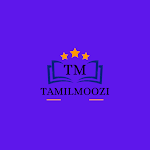• It consists of two houses, namely the Rajya Sabha and the Lok
Sabha. The Union Judiciary consists of the Supreme Court of
India.
• The President of India
• The President is the nominal executive authority. The chief
executive of the Indian union is the President.
• He is designated as the First citizen of India. He is the supreme
commander of the armed forces. The President is also the
Constitutional head of the Union Executive.
• According to Article 53 of the constitution, the executive
power of the Union shall be vested in the President which shall
be exercised by him directly or through officers subordinate to
him in accordance with Constitu
ELECTION OF THE PRESIDENT
• The President is elected by an electoral college in accordance with the system of
proportional representation by means of single transferable vote.
• The Electoral College consists of the elected members of both houses of Parliament and
the elected members of the states and elected members of National Capital Territory of
Delhi and Puducherry.
• Once elected as the President has to take an oath of office before the Chief Justice of
India.
• The President is elected for a term of five years and can be re-elected.
POWERS OF THE PRESIDENT EXECUTIVE POWERS
• Article 77 requires that every executive action of the Union shall be taken in the name of the
President.
• He appoints the Prime Minister and the other members of the Council of Ministers,
distributing portfolios to them on the advice of the Prime Minister.
• He is responsible for making a wide variety of appointments.
• These include the appointment of Governors of States, the Chief Justice and other Judges of
the Supreme Court and high Courts, the Attorney General, the Comptroller and Auditor
General, the Chief Election Commissioner and other Election Commissioners the Chairman
and other Members of the Union Public Service Commission Ambassadors and High
Commissioners to other countrie
LEGISLATIVE POWERS
• He inaugurates the session of the Parliament by addressing it after the general election
and also at the beginning of the first session each year.
• This address is essentially identical in nature to a Speech from the Throne.
• The President summons Parliament at least twice in a year. He may send messages to
either House of the Parliament with respect to a bill pending in the House.
• All bills passed by the Parliament become “Laws of Acts” only after getting assent of the
President.
• Money bills cannot be introduced in the Parliament without his approval.
LEGISLATIVE POWERS
• He inaugurates the session of the Parliament by addressing it after the general election
and also at the beginning of the first session each year.
• This address is essentially identical in nature to a Speech from the Throne.
• The President summons Parliament at least twice in a year. He may send messages to
either House of the Parliament with respect to a bill pending in the House.
• All bills passed by the Parliament become “Laws of Acts” only after getting assent of the
President.
• Money bills cannot be introduced in the Parliament without his approval.
REMOVAL OF THE PRESIDENT
• The President may by writing under his hand addressed to the Vice-President, resign his office.
• The President may, for violation of the Constitution, be removed from office by impeachment
in the manner provided in Article 61;
• The Impeachment action can be brought about in the form of resolution in either house of
the Parliament.
• It must be supported by not less than One-Fourth of the total strength of the House for its
introduction.
• The President shall, in spite of the conclusion of his term, continue to hold office until his
successor enters upon his office.







0 கருத்துகள்